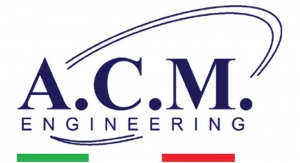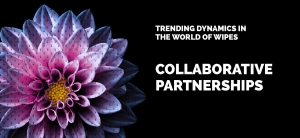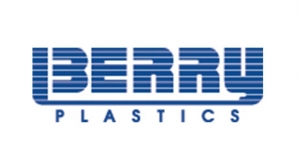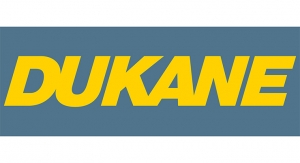09.09.15
Evansville, IN
www.berryplastics.com
2015 Nonwovens Sales: $2 billion
Key Personnel
Jon Rich, CEO; Mark Miles, CFO; Scott Tracey, president, Health, Hygiene and Specialties division; Larry Goldstein, North America president Health, Hygiene and Specialties division
Plants
U.S.—Benson, Mooresville and Statesville, NC; Clackamas, OR; Old Hickory, TN; Waynesboro, VA. Canada—North Bay, OT. Latin America—Buenos Aires, Argentina; Pouso Alegre and São José dos Pinhais, Brazil; Cali, Colombia; San Luis Potosi, Mexico. Europe—Bailleul, France; Aschersleben, Beisheim and Berlin, Germany; Terno d’Isola, Italy; Tarragona, Spain; Cuijk, The Netherlands; Aberdare, U.K.; Maldon, U.K.. Asia—Mundra, India; Nanhai and Suzhou, China
Processes
Spunbond, meltblown, SMS, composites, through air bonded, adhesive bonded, resin bonded, thermal bonded, spunlace, airlaid, apertured film, film laminates, sonic laminated, extruded polyolefins, thermal laminated, Apex, Spinlace and other proprietary fabric forming, surfacing and binding systems
Trademarked Technologies
Apex, Amira, Arium, Nuvibond, Reemay, Spinlace, S-Tex, Typar
Brands
Agribon, Agryl Novagryl, Air-Gard, Chicopee, Chifonet Wipeschix, Chux, Comfortsilk, Covertan Pro, Durawipe, Geca Tapes, Medisoft, Medisoft Ultra, Pentamax, Reicrop, Reticulon, Soft-Touch, Spinlace, Sur-Prep Wipes, Reemay, Typar, Terram, Topswell, Tubex
The world’s largest nonwovens producer continues to focus on investment as its key growth strategy even as it continues under new ownership. In late 2015, Berry Plastics, a manufacturer of films for personal care applications among other things, acquired Avintiv, the nonwovens manufacturer formerly known as Polymer Group Inc., for a $2.45 billion cash deal. Announced in July 2015, the acquisition closed in October 2015.
Prior the acquisition, Avintiv had been steadily increasing its sales through both acquisitions and capital investments during the past five years, which drove its sales above $2 billion, and increased its global footprint across the U.S., South America, Europe and China. While much of this investment centered around spunbond and spunmelt nonwovens for the hygiene market, Avintiv also has a range of nonwovens technologies for industrial markets including filtration, construction and geosynthetics as well as a proprietary technology for the wipes market.
By acquiring Avintiv, Berry Plastics increased its exposure to the world’s leading makers of diapers, feminine hygiene items and adult incontinence. Before the acquisition, Berry and Avintiv shared several key customers—nine of Avintiv’s top 10 customers in these segments were also key Berry accounts. Avintiv supplies polypropylene-based nonwovens that act as coverstock and absorbent material in diapers and other hygiene items, while Berry sells backsheet materials, molded wrapping and fem care applicators to the same markets.
While it is not known yet if Berry is working on a hybrid film/nonwoven product that could help hygiene product makers streamline their production processes, many are speculating that such a product is a likely result of this acquisition. What is known, however, is that the merger of the two companies has significantly increased Berry’s position as a purchaser of polypropylene resin; the two companies together buy about two billion pounds of the material annually—and more attractive resin pricing will help the company save about $50 million per year.
In addition to these synergies, Avintiv’s global presence was one of the reasons why Avintiv appealed to Berry—more than 90% of its pre-acquisition sales are in North America where its manufacturing is also heavily weighted. Meanwhile, Avintiv operates 23 sites in 14 countries. Just 44% of its sales were in North America while the remaining were split between South America, Europe, the Middle East and Africa and China.
Following the acquisition, Berry Health and Hygiene, the division that contains the Avintiv business as well as Berry’s existing personal care activities, reports that half of its sales are in North America while 23% are in Europe, the Middle East and Africa, 16% are in Latin America and 10% are in the Asia-Pacific region.
“One of the reasons Avintiv was so attractive to Berry was its market leadership globally in segments that are growing,” says Scott Tracey, president of the Health and Hygiene and Specialties division.
Tracey, an 11-year veteran of Avintiv, now leads the Health and Hygiene and Specialties division, which was created in November not long after the acquisition. It represents 35% of Berry Plastics’ sales.
With the reorganization, Avintiv CEO Joel Hackney announced he would leave the company to pursue other interests. Hackney had served at the helm of Avintiv since 2013 and led it through a series of acquisitions and investments that ultimately made it the world’s largest producer of nonwoven fabrics.
As it continues to integrate the two companies, Berry has already announced plans for expansion. In April, it said it would add a new line in North America. While a firm location for the line has yet to be announced, executives say it will likely be at one of the company’s existing nonwovens operations in Mooresville, NC, Waynesboro, VA, Washougal, WA or San Luis Potosi, Mexico.
The line, which will add an incremental 16,000 metric tons of capacity to Avintiv’s North American capacity, will respond to the need for softer better fitting materials that is currently driving the hygiene market. It is expected to start up in 2018.
“We don’t make our decisions based on supply versus demand but we do not consider North America to be significantly over capacity,” Tracey says. “We look at strategic growth and the demands of our customers. They are the decision drivers.”
Prior to the acquisition, Avintiv’s last major North American capital investment project centered around its Spinlace technology for the wipes market. In the third quarter of 2014, a 300 million-square-meter expansion of this technology came onstream, allowing Avintiv to better serve its global customers and support the continuing growth of its global business.
Spinlace, a proprietary continuous filament nonwovens technology, was first introduced by Avintiv in the early 2000s, and it continues to grow across consumer and industrial wiping applications, according to executives.
Meanwhile at its site in San Luis Potosi, Mexico, where Berry operates several spunmelt lines, an investment to add state-of-the-art printing as well as inline slitting and packaging capabilities is allowing customers to take advantage of the company’s print expertise while simplifying and reducing risk in the supply chain. The expansion, which was complete in late 2015, brings the site’s print capacity to 600 million square meters.
Looking at the company’s industrial business, acquired from Fiberweb in 2010, the company has upgraded machinery in Waynesboro to develop two nanofiber technologies for the global filtration market. The result of this investment is the Everist brand filtration media, which the company bills as the next answer in high efficiency filtration offering enhanced mechanical efficiency, low pressure drop and excellent dirt holding capacity.
Tracey says that the Avintiv industrial business exposes Berry to a number of interesting growth markets including filtration, roofing and geosynthetics with many core brands like Reemay and Typar.
“Our innovation has been enhanced by combining the nonwovens and films businesses—not just in health and hygiene but across all of the business segments,” Tracey says. “This has allowed us to create attributes that are different from when you are just a component supplier.”
Back to the investment news, Berry is finishing up a €25 million European expansion project. The first phase of this investment was the conversion of a line in Tarragona, Spain, from SSXXS to SSMMS, which increased capacity by 50% of 15,000 tons. This investment was in direct response to the evolving market demand for spunmelt in personal care and hygiene products across Europe, the Middle East and Africa (EMEA), according to the company.
The second phase of this European investment was undertaken at the company’s facility in Terno D’Isola, Italy, where a brand new, state-of-the-art carded line has increased the company’s capability to produce soft materials.
The investment underscores the importance the company places in increasing the performance of its personal care products through innovative spunmelt and carded technologies.
Berry has also added a meltblown line to an existing line in Suzhou, China, which was originally added in 2013, to better target medical applications. Elsewhere in Asia, Berry now has a brand new facility in Nanhai, China, which replaced an existing site built in 1996. Announced in 2014 and completed in 2015, this site has allowed the company to expand its manufacturing capacity for high quality nonwoven products for the global hygiene and healthcare markets.
Meanwhile in South America, the acquisition of Companhia Providencia in 2014 gave it a strong foothold in Brazil, which complements recent investments or upgrades in Argentina, Mexico and Colombia that the company has undergone in recent years.
www.berryplastics.com
2015 Nonwovens Sales: $2 billion
Key Personnel
Jon Rich, CEO; Mark Miles, CFO; Scott Tracey, president, Health, Hygiene and Specialties division; Larry Goldstein, North America president Health, Hygiene and Specialties division
Plants
U.S.—Benson, Mooresville and Statesville, NC; Clackamas, OR; Old Hickory, TN; Waynesboro, VA. Canada—North Bay, OT. Latin America—Buenos Aires, Argentina; Pouso Alegre and São José dos Pinhais, Brazil; Cali, Colombia; San Luis Potosi, Mexico. Europe—Bailleul, France; Aschersleben, Beisheim and Berlin, Germany; Terno d’Isola, Italy; Tarragona, Spain; Cuijk, The Netherlands; Aberdare, U.K.; Maldon, U.K.. Asia—Mundra, India; Nanhai and Suzhou, China
Processes
Spunbond, meltblown, SMS, composites, through air bonded, adhesive bonded, resin bonded, thermal bonded, spunlace, airlaid, apertured film, film laminates, sonic laminated, extruded polyolefins, thermal laminated, Apex, Spinlace and other proprietary fabric forming, surfacing and binding systems
Trademarked Technologies
Apex, Amira, Arium, Nuvibond, Reemay, Spinlace, S-Tex, Typar
Brands
Agribon, Agryl Novagryl, Air-Gard, Chicopee, Chifonet Wipeschix, Chux, Comfortsilk, Covertan Pro, Durawipe, Geca Tapes, Medisoft, Medisoft Ultra, Pentamax, Reicrop, Reticulon, Soft-Touch, Spinlace, Sur-Prep Wipes, Reemay, Typar, Terram, Topswell, Tubex
The world’s largest nonwovens producer continues to focus on investment as its key growth strategy even as it continues under new ownership. In late 2015, Berry Plastics, a manufacturer of films for personal care applications among other things, acquired Avintiv, the nonwovens manufacturer formerly known as Polymer Group Inc., for a $2.45 billion cash deal. Announced in July 2015, the acquisition closed in October 2015.
Prior the acquisition, Avintiv had been steadily increasing its sales through both acquisitions and capital investments during the past five years, which drove its sales above $2 billion, and increased its global footprint across the U.S., South America, Europe and China. While much of this investment centered around spunbond and spunmelt nonwovens for the hygiene market, Avintiv also has a range of nonwovens technologies for industrial markets including filtration, construction and geosynthetics as well as a proprietary technology for the wipes market.
By acquiring Avintiv, Berry Plastics increased its exposure to the world’s leading makers of diapers, feminine hygiene items and adult incontinence. Before the acquisition, Berry and Avintiv shared several key customers—nine of Avintiv’s top 10 customers in these segments were also key Berry accounts. Avintiv supplies polypropylene-based nonwovens that act as coverstock and absorbent material in diapers and other hygiene items, while Berry sells backsheet materials, molded wrapping and fem care applicators to the same markets.
While it is not known yet if Berry is working on a hybrid film/nonwoven product that could help hygiene product makers streamline their production processes, many are speculating that such a product is a likely result of this acquisition. What is known, however, is that the merger of the two companies has significantly increased Berry’s position as a purchaser of polypropylene resin; the two companies together buy about two billion pounds of the material annually—and more attractive resin pricing will help the company save about $50 million per year.
In addition to these synergies, Avintiv’s global presence was one of the reasons why Avintiv appealed to Berry—more than 90% of its pre-acquisition sales are in North America where its manufacturing is also heavily weighted. Meanwhile, Avintiv operates 23 sites in 14 countries. Just 44% of its sales were in North America while the remaining were split between South America, Europe, the Middle East and Africa and China.
Following the acquisition, Berry Health and Hygiene, the division that contains the Avintiv business as well as Berry’s existing personal care activities, reports that half of its sales are in North America while 23% are in Europe, the Middle East and Africa, 16% are in Latin America and 10% are in the Asia-Pacific region.
“One of the reasons Avintiv was so attractive to Berry was its market leadership globally in segments that are growing,” says Scott Tracey, president of the Health and Hygiene and Specialties division.
Tracey, an 11-year veteran of Avintiv, now leads the Health and Hygiene and Specialties division, which was created in November not long after the acquisition. It represents 35% of Berry Plastics’ sales.
With the reorganization, Avintiv CEO Joel Hackney announced he would leave the company to pursue other interests. Hackney had served at the helm of Avintiv since 2013 and led it through a series of acquisitions and investments that ultimately made it the world’s largest producer of nonwoven fabrics.
As it continues to integrate the two companies, Berry has already announced plans for expansion. In April, it said it would add a new line in North America. While a firm location for the line has yet to be announced, executives say it will likely be at one of the company’s existing nonwovens operations in Mooresville, NC, Waynesboro, VA, Washougal, WA or San Luis Potosi, Mexico.
The line, which will add an incremental 16,000 metric tons of capacity to Avintiv’s North American capacity, will respond to the need for softer better fitting materials that is currently driving the hygiene market. It is expected to start up in 2018.
“We don’t make our decisions based on supply versus demand but we do not consider North America to be significantly over capacity,” Tracey says. “We look at strategic growth and the demands of our customers. They are the decision drivers.”
Prior to the acquisition, Avintiv’s last major North American capital investment project centered around its Spinlace technology for the wipes market. In the third quarter of 2014, a 300 million-square-meter expansion of this technology came onstream, allowing Avintiv to better serve its global customers and support the continuing growth of its global business.
Spinlace, a proprietary continuous filament nonwovens technology, was first introduced by Avintiv in the early 2000s, and it continues to grow across consumer and industrial wiping applications, according to executives.
Meanwhile at its site in San Luis Potosi, Mexico, where Berry operates several spunmelt lines, an investment to add state-of-the-art printing as well as inline slitting and packaging capabilities is allowing customers to take advantage of the company’s print expertise while simplifying and reducing risk in the supply chain. The expansion, which was complete in late 2015, brings the site’s print capacity to 600 million square meters.
Looking at the company’s industrial business, acquired from Fiberweb in 2010, the company has upgraded machinery in Waynesboro to develop two nanofiber technologies for the global filtration market. The result of this investment is the Everist brand filtration media, which the company bills as the next answer in high efficiency filtration offering enhanced mechanical efficiency, low pressure drop and excellent dirt holding capacity.
Tracey says that the Avintiv industrial business exposes Berry to a number of interesting growth markets including filtration, roofing and geosynthetics with many core brands like Reemay and Typar.
“Our innovation has been enhanced by combining the nonwovens and films businesses—not just in health and hygiene but across all of the business segments,” Tracey says. “This has allowed us to create attributes that are different from when you are just a component supplier.”
Back to the investment news, Berry is finishing up a €25 million European expansion project. The first phase of this investment was the conversion of a line in Tarragona, Spain, from SSXXS to SSMMS, which increased capacity by 50% of 15,000 tons. This investment was in direct response to the evolving market demand for spunmelt in personal care and hygiene products across Europe, the Middle East and Africa (EMEA), according to the company.
The second phase of this European investment was undertaken at the company’s facility in Terno D’Isola, Italy, where a brand new, state-of-the-art carded line has increased the company’s capability to produce soft materials.
The investment underscores the importance the company places in increasing the performance of its personal care products through innovative spunmelt and carded technologies.
Berry has also added a meltblown line to an existing line in Suzhou, China, which was originally added in 2013, to better target medical applications. Elsewhere in Asia, Berry now has a brand new facility in Nanhai, China, which replaced an existing site built in 1996. Announced in 2014 and completed in 2015, this site has allowed the company to expand its manufacturing capacity for high quality nonwoven products for the global hygiene and healthcare markets.
Meanwhile in South America, the acquisition of Companhia Providencia in 2014 gave it a strong foothold in Brazil, which complements recent investments or upgrades in Argentina, Mexico and Colombia that the company has undergone in recent years.




















